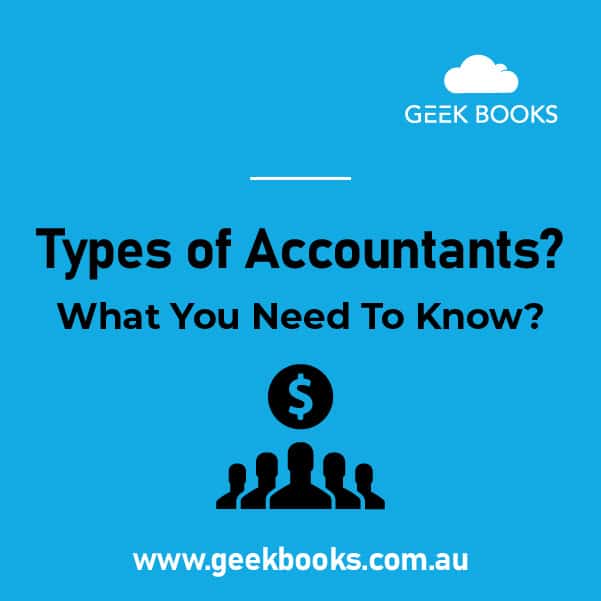Choosing the right type of accountant for your business is like choosing the right tool for a handyman job.
While some tools may look the same, there can be significant differences in how they work. For example, choosing a metal cutting blade to cut through some timber will waste energy, time, and resources.
The same principle applies when choosing the right accountant for your business.
While all accounting roles may appear to be similar, there are some significant differences that you need to understand to make sure you choose the right type of accountant for your business.
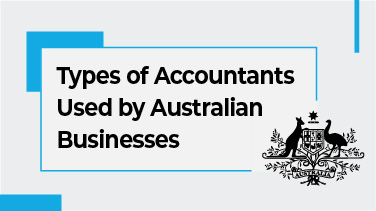
Types of Accountants Used by Australian Businesses
You may be wondering, how many types of accountants are there? This article will look at ten common types of accountants in Australia, what their job entails and how to choose the right one for your business.
- Auditors
- Bookkeepers
- Chartered Accountants
- Cost Accountants
- Financial Accountants
- Forensic Accountants
- Insolvency Accountants
- Investment Accountants
- Tax Accountants
- Management Accountants
 Auditors
Auditors
Auditors are accountants who specialise in reviewing and evaluating businesses’ financial documents and records.
Auditors must comply with the Generally Accepted Accounting Principles (GAAP) and laws and regulations in Australia. Some of their responsibilities include
- Assuring shareholders, stakeholders and regulators that the business’s financial information is accurate and reliable.
- Assuring the effectiveness of your company’s risk management and internal control systems.
- Examining your company’s compliance with laws and regulations, such as the Corporations Act 2001 and the Australian Securities and Investments Commission (ASIC) Act 2001.
- Conducting investigations to detect and stop fraud.
- Offering advice on how your business may cut costs.
 Bookkeepers
Bookkeepers
Bookkeepers are a type of accountant responsible for maintaining accurate financial accounting records for businesses. Their responsibilities include
- Handling day-to-day financial transactions, such as recording sales, purchases, and payments in accounting software. Also, reconciling bank statements and maintaining accurate inventory records, accounts payable and receivable.
- Assisting in preparing financial statements and reports for management and compliance with legal and regulatory requirements.
- Assisting in budgeting, forecasting, and financial analysis.
Bookkeepers help Australian businesses by keeping accurate financial records. These records form the basis of the information used by other accountants, such as tax accountants, management accountants and auditors, to provide financial strategy advice and assurance to your business.
 Chartered Accountants
Chartered Accountants
Chartered Accountants are accountants who have completed a recognised degree in accounting and have met specific education, experience and ethical requirements.
They are members of professional bodies such as Chartered Accountants Australia and New Zealand (CA ANZ) or the Institute of Chartered Accountants in Australia (ICAA).
They can provide various accounting, tax, and business advisory services to businesses and individuals. Some of their responsibilities include
- Providing services such as preparing financial statements, tax planning and compliance, management accounting, financial planning, and business advisory services.
- Offering a high level of audit, forensic accounting, and corporate governance expertise.
These types of accountants help Australian businesses by providing expert financial advice, assurance, and support to companies and individuals.
A chartered accountant allows you, as a business owner, to make informed financial decisions and achieve your financial goals.
 Cost Accountants
Cost Accountants
Cost accountants are a type of accountant who specialises in measuring and analysing the costs of goods and services produced by a business.
They play a crucial role in helping companies to understand the costs associated with production and how to control and reduce those costs to increase profitability. A cost accountant’s responsibilities would include the following:
- Providing information to management on the cost analysis of raw materials, labour, and overhead and assisting in developing budgets and forecasts.
- Analysing variances from budgeted costs and helping identify the causes.
- Assisting in the development of pricing strategies and product profitability analysis.
By assisting your business and providing insights on the costs of goods and services produced, cost accountants enable you to make sound business decisions and increase your overall profitability.
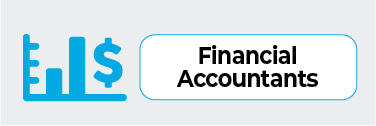 Financial Accountants
Financial Accountants
Financial accounting involves preparing and analysing financial statements and reports for individuals or large businesses. Financial accountants’ responsibilities include
- The accurate and timely preparation of financial account statements and reports, such as balance sheets, income statements, and cash flow statements. All these must be in accordance with the Generally Accepted Accounting Principles (GAAP) or International Financial Reporting Standards (IFRS).
- Assisting in preparing budgets and forecasts and providing analysis and interpretation of financial data to management.
- Helping in the identification and measurement of financial performance indicators and key performance indicators.
Financial accountants help your business by providing accurate financial information, enabling you to make well-informed future decisions and ensure compliance with relevant laws and regulations.
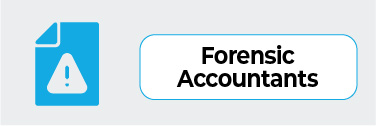 Forensic Accountants
Forensic Accountants
Specialising in investigating and analysing financial information, forensic accountants provide evidence for legal or regulatory proceedings.
They are often called upon to assist in legal cases involving financial fraud, embezzlement, money laundering, and other financial crimes.
Forensic accountants use accounting, auditing, and investigative skills to uncover and analyse financial evidence and may provide expert testimony in court. Their key responsibilities include
- Assisting in investigating white-collar crimes and supporting civil litigation and commercial disputes.
- Helping detect and prevent fraud by identifying and assessing the risk of fraud and developing and implementing fraud prevention measures.
These types of accountants help protect Australian businesses’ assets and reputations by providing evidence and expert testimony in legal proceedings.
While you hope never to need their services, it’s wise to understand the role of a forensic accountant, just in case.
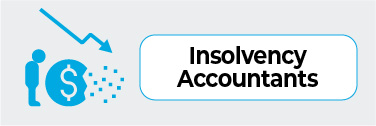 Insolvency Accountant
Insolvency Accountant
Insolvency accountants assist in the financial and legal aspects of insolvency and bankruptcy. They help businesses and individuals in financial distress by providing advice on options such as voluntary administration, liquidation or debt agreements. An insolvency accountant’s responsibilities include
- Assisting with preparing and implementing a plan to restructure the business or individual’s financial affairs.
- Helping to identify assets and negotiate with creditors.
- Providing support to trustees and receivers in the administration of bankrupt estates.
- Assisting in preparing reports to the court and other regulatory bodies.
Insolvency accountants provide expert advice and support during a business’s insolvency process, which helps minimise financial losses and maximise the return to creditors.
 Investment Accountant
Investment Accountant
Investment accountants specialise in the accounting, reporting and compliance of investment entities.
They assist investment companies, funds, trusts, and other entities with preparing and analysing financial statements, compliance with accounting standards and regulations, and tax compliance. Their responsibilities include
- Helping evaluate investment performance, portfolio management, and risk management.
- Providing support for accounting and compliance of different investments such as stocks, bonds, derivatives, real estate and private equity.
- Assisting in preparing financial reports and disclosures for stakeholders such as investors and regulators.
Investment accountants provide expert advice and support on investment accounting, compliance, and reporting.
They also help to ensure the integrity and accuracy of your business’s financial information in compliance with applicable laws and regulations of government agencies.
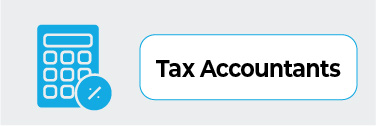 Tax Accountants
Tax Accountants
Specialising in preparing and filing tax returns, tax accountants advise clients on tax planning and compliance.
They are experts on tax laws and regulations and help businesses and individuals to minimise their tax liability by utilising tax deductions, credits, and other tax-saving strategies. A tax accountant’s typical responsibilities include
- Helping clients prepare and file tax returns and providing advice on tax planning, compliance and reporting.
- Assisting clients with tax disputes and audits.
Tax accountants help Australian businesses by providing actionable advice on tax compliance and minimising tax liabilities.
In turn, this helps to ensure compliance with laws and regulations and maximise profits. These accountants will help you to stay compliant with tax laws and regulations and to avoid penalties and fines.
Management Accountants
Management accountants, also known as cost, managerial or corporate finance accountants, specialise in providing financial and operational information to project managers and executives. A management accountant’s responsibilities include
- Assisting in budgeting, forecasting, strategic planning, performance evaluation, and cost management.
- Helping design internal controls and accounting systems.
- Using expertise in financial analysis, cost accounting, and budgeting to provide management with the information they need to allocate resources and manage financial risk.
- Helping identify areas of the business that can improve efficiency and profitability.
By providing the financial and operational information you need to make strategic decisions, management accountants can help improve your business’s overall performance.
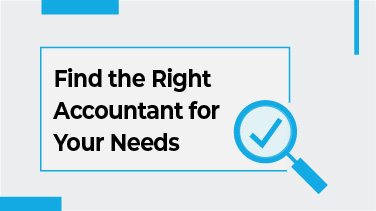 Find the Right Accountant for Your Needs
Find the Right Accountant for Your Needs
It’s clear that there are many different types of accountants, and each type has its specialised role. When selecting an accountant, you need to consider the specific needs of your business and choose an accountant with experience in that area.
For example, if you are looking for assistance with tax planning and filing, you should look for an experienced tax accountant.
A management accountant may be the best choice if you need help with financial planning and budgeting.
Careful research and due diligence are the keys to finding the right accountant. First, make sure you understand what type of accounting advice you need by doing your research.
Once you have an idea of the type of accountant you need, you can start researching accountants in your area who have experience in the relevant field.
If you’re a small business owner, accurate bookkeeping is essential for your business to succeed.
But it can be a time-consuming task that many small businesses need help managing. That’s where GeekBooks accounting professionals and bookkeepers come in.
Our accounting firm will take care of all your bookkeeping needs, from data entry to financial statements.
With your bookkeeping sorted, you can focus on what you do best – running your business. And if you’re looking to take your business to the next level, our accountants can help you with tax planning, financial forecasting, and more.
Good accounting and bookkeeping will help build your business from a small startup into a successful enterprise.
Complete our online booking form or call us on 02 9158 3591 to get a free bookkeeping quote today!



